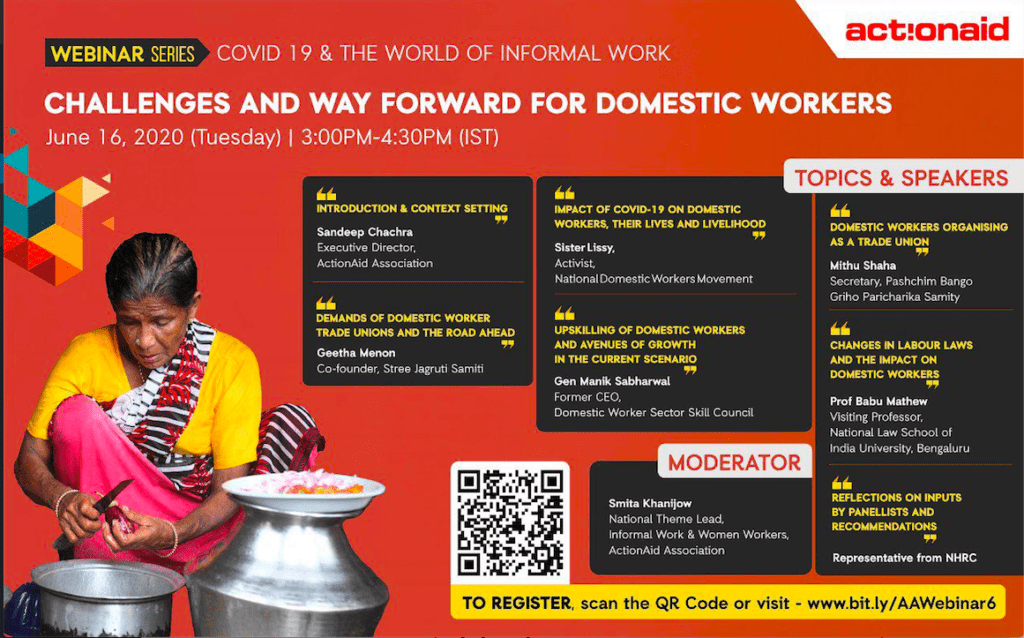Akshara Anirjita
ActionAid
New Delhi, India
Hannah Arendt coined the famous and perhaps overused phrase, “banality of evil,” in her book, Eichmann in Jerusalem. What she meant by this was that not all purveyors of “evil” or gross injustices are obviously demonic; some are seemingly garden-variety rule-following bureaucrats. Her larger claim is that evil is not always visible and that policies, when implemented without thought by unsuspecting bureaucrats, can also be evil.
What has become banal in India is the state’s insensitivity to the plight of poor, unskilled workers, and the non-people-centric, gender-blind policies and efforts towards liberalization (since the 1990s) that have acted to commercialize aspects of the informal sector, such as domestic work. Domestic labor sits somewhere uncomfortably between the public and private spheres, where the workplace is the private home. It’s categorized by tasks that take a physical and emotional toll on those performing them, and these tasks are Sisyphean in that they can never truly be completed because they cater to biological and base needs that are ever-present.
Privilege, education, and wealth allow some women freedom of mobility. They transition from the private sphere of their houses to the public sphere of increasingly corporate jobs, leaving unpaid care work to become visible through inclusion in GDP calculations and economic discourses on development. As these women enter the “workforce,” a lack of public service provisions such as childcare leads to the need for hired domestic care workers, and a rigid definition of gender roles ensures that these workers are predominantly women. The number of hired domestic workers in India has been on the rise since the late 1990s and has increased 120% since liberalization of the country.
The way that female domestic workers utilize their right to mobility is cruder and a function of necessity than purely of a freedom. They migrate from poorer regions (often tribal pockets of poor states) to urban cities, looking for paid work. Domestic workers constitute some of the most vulnerable victims of COVID-19 due to a lack of formal job contracts, the unstable nature of their work, getting stigmatized by their employers as vectors of the disease, and their subsequent inability to pay their rent in the cities. Suspension of public transport systems have led to them being homeless and trapped in cities.
The effect of the COVID-19 pandemic burns a hole in the theory that domestic workers solely need higher wages and highlights the importance of social security nets in a time when jobs are uncertain. The lack of recognition and regulation of the sector also hinders access of workers to government pandemic relief, such as grain allotment programs.
Arendt’s aforementioned book states that the legal framework views the doer of evil as a scapegoat and asks if systems and events (in her case, antisemitism in Germany) can be tried under such frameworks at all. This leads me to ask if the international legal framework, be it international courts or transitional justice projects, is equipped to mete out justice for victims of incidents such as the COVID-19 pandemic, where the most vulnerable are the poorest who depend on unstable informal work.
While this might be a larger question, the project I am supporting ActionAid with aims to find a way forward so that policies and concerns of women in the informal sector are voiced and re-imagined in the context of COVID-19, with the help of union leaders, policy and legal experts in the field, and so on. For this month, we are planning various webinars, each concerned with a specific sector. For example: domestic workers (this week, as shown in the picture above), construction workers, garment workers, and so forth.
